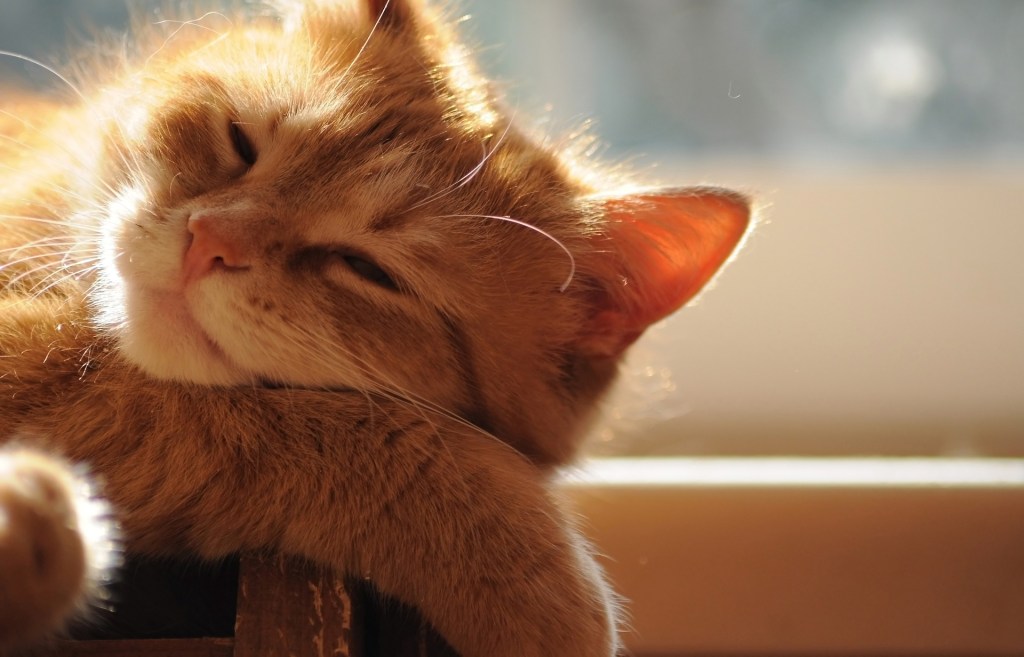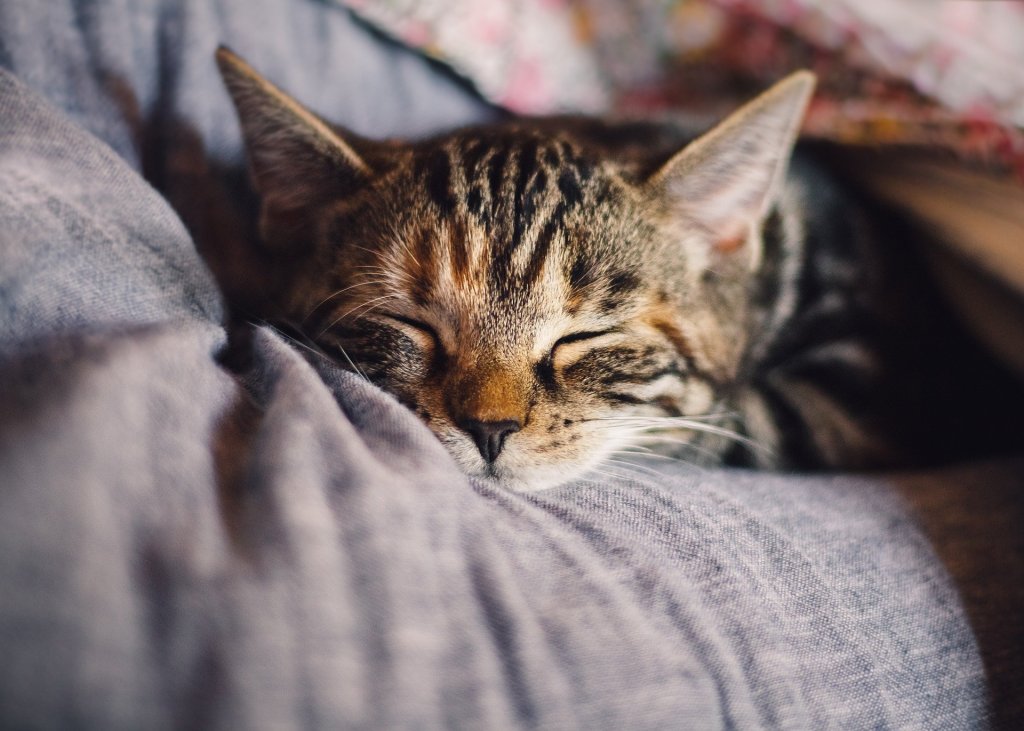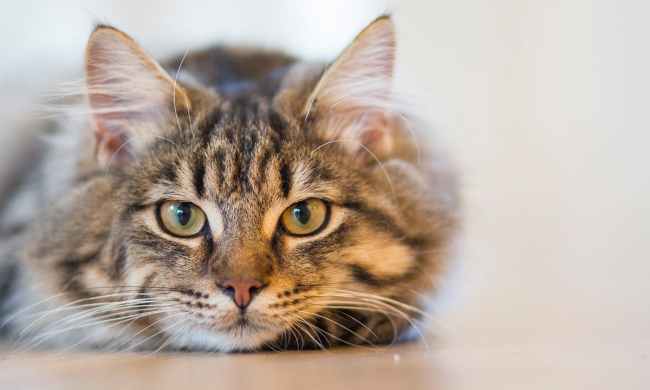If your cat wakes you up by running through the house at 2 a.m., playing in the early morning hours, or meowing at you an hour or two before you actually have to get up, you’re not alone. The truth is, your cat’s sleeping habits are probably widely different from yours. That doesn’t mean that you and your cat can’t both sleep through the night, though. Working with your cat’s sleep habits will take some time and creativity, but you can encourage him to go to bed when you do and to let you sleep soundly until it’s time to get up in the morning.

Understanding the cat sleep cycle
Cats sleep a lot, with many dozing about 15 hours a day. As your cat ages, he may naturally start to sleep more. But while cats can catch some serious z’s, they’re largely nocturnal — which may mean your cat keeps you up at night or wakes you up early in the morning.
Cats’ sleeping habits are also closely tied to their hunting and mealtimes. Cats instinctively hunt at night. After they catch their prey and enjoy a meal, they rest up for the next hunt, creating a cycle of playing or hunting, eating, and napping.
This all works well for cats who live in the wild, but when your cat’s sleep habits don’t coordinate with your own, getting a good night’s rest can be a real challenge. Luckily, you can do a number of things to get your cat to let you sleep through the night.

How to get your cat to let you sleep through the night
One of the best ways to get your cat to let you sleep overnight without interruption is to align your sleep schedules. This can take some time, and your cat will probably still spend part of the day asleep, but it can also help get him to sleep through part, if not all, of the night.
- Increase daytime activities: To start this process, you’ll need to get your cat more active during the day than he normally is. Catnaps are fine, but give your cat activities to keep him occupied. Hold several play sessions during the day, including one large play session just before you go to bed at night. This extra activity will help tire your cat out and encourage him to sleep during the nighttime hours.
- Make sure your cat is fed: It’s also important to realize that your cat won’t wake you up just because he’s active and playing. He may also try to get you out of bed because he’s hungry and knows that you’ll bring breakfast. To circumvent this, consider leaving dry food for your cat overnight. You can also break his wet food up into multiple meals per day, feeding him the last meal just before you go to bed at night. Alternatively, you can use a timed feeder that gives your cat small meals during the night, too. If your cat does try to wake you up early for breakfast, ignore him — giving in and getting up to feed him will only reinforce the habit and encourage him to try it again.
- Reinforce that your bedroom isn’t for playtime: You should also consider whether you want to allow your cat in the bedroom. This makes it easy for him to try to wake you, and if he chooses to play or jump onto and off the bed, he may accidentally wake you, too. If you do decide to let him stay in the bedroom, then make the room a play-free zone. Remove all toys and leave behind just his cat bed or a blanket that he prefers.
- Set a schedule: Setting a schedule can also help. Try to go to bed at the same time each night and wake up at the same time each morning — even on your days off. Your cat will gradually get used to your schedule and will come to expect you to be asleep at certain times. Establishing a bedtime routine where you play with your cat, feed him, and go to bed can also reinforce that it’s time to go to sleep.
Retraining your cat’s sleep schedule takes consistency and time, and there will certainly be nights when he still wakes you up. The more consistent you can stay, though, the better the results you’re likely to have. If your cat remains restless at night, it might be worth taking him to your vet to have him evaluated for any potential health issues. Increasing his playtime frequency and intensity may also help. You may need to experiment with your routines and timing, but you can teach your cat to sleep through the night, or at least to interrupt you less so you can get a good night’s sleep.


